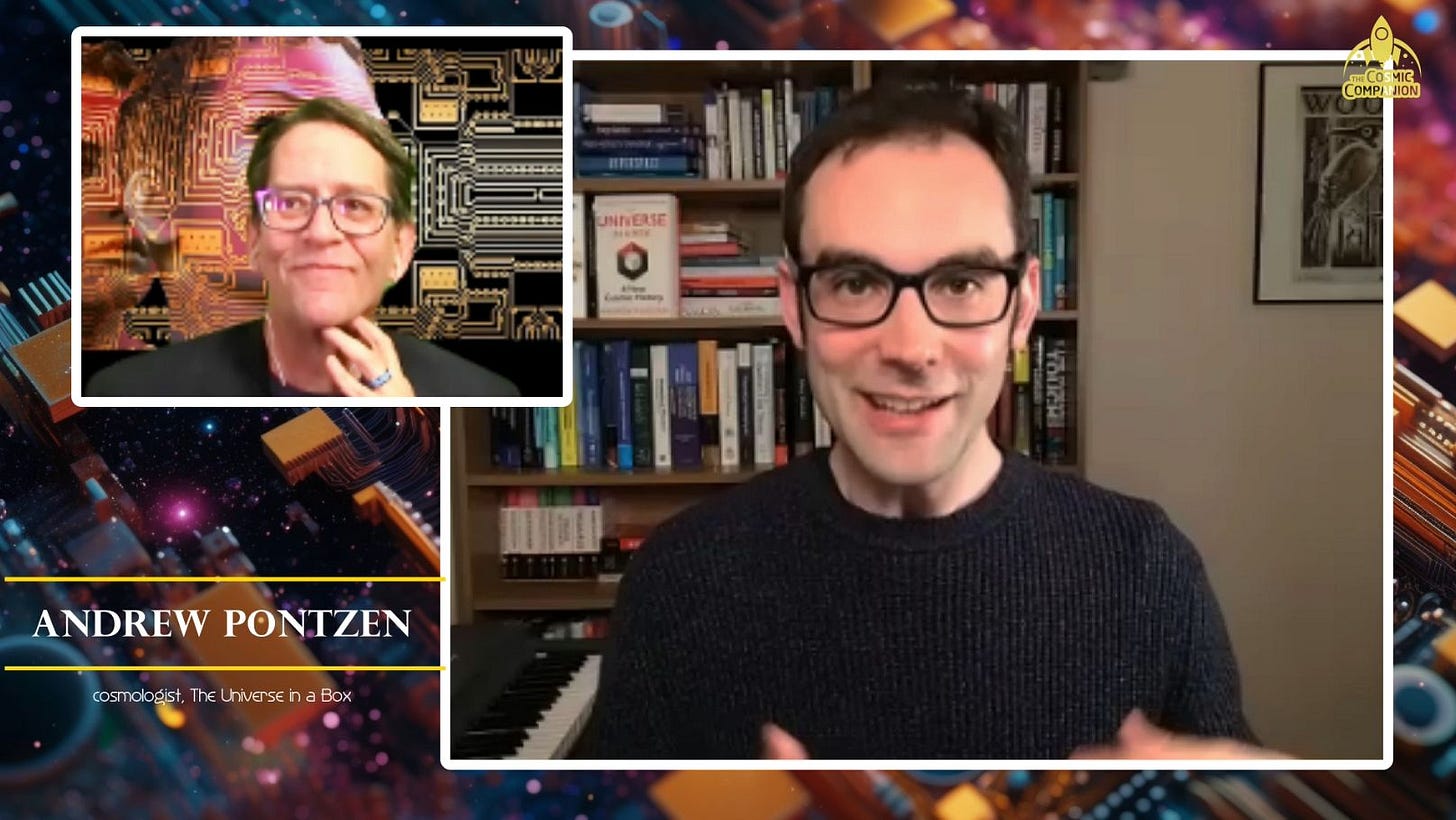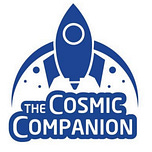
This week on The Cosmic Companion, we explore the fascinating world of computer models of the universe! From humble beginnings to mind-boggling simulations, this is the history of how we unravel mysteries of the Cosmos using the power of computers.
Astronomers and cosmologists seek to understand what happened billions of years ago, and what may happen billions of years in the future. They explore the mysteries of dark matter, black holes, galaxies, and more.
Listen to the podcast version of this episode here, or watch it as a video.
Among their tools are computer models and simulations. Using mathematical equations and data to represent physical phenomena, researchers develop and test their theories about the Cosmos.
Following the advent of early computers like Eniac, computers became more sophisticated and powerful, as did our cosmological models. Still, the late 70s and early 80s were the age of Atari 2600s, TRS-80, and my first computer, the Timex Sinclair 1000. That 16k memory expansion module made that machine QUITE the powerhouse!
Supercomputers of the time were capable of performing just a few tens or 100 of millions of calculations per second. Yet, researchers used these systems to simulate gravitational interactions between galaxies, letting them collide, merge, and form new structures.
In the 1990s and 2000s, computer models reached new levels of realism and complexity. They could start to account for the effects of dark matter and the newly-proposed dark energy, which make up most of the mass and energy in the universe. Modern cosmological simulations are among the most ambitious scientific projects ever undertaken.
Thee first computer models simulating the structure of the entire observable Universe ran in 2012. Ten years later, the Thesan simulation revealed how radiation helped shape the Universe in its first billion years.
Cutting-edge supercomputers allow us to model the entire history of the Universe from the Big Bang to the present day. We are now witnessing the birth of mind-bogglingly complex simulations, showing us the birth of stars, the formation of black holes, and the ebb and flow of cosmic filaments tying galaxies together.
Next up, we talk with cosmologist Andrew Pontzen, author of The Universe in a Box.
Researchers are now simulating the evolution of entire universes. Yes, you heard me right — universes!
Today, computer models are essential for understanding the universe. They help us explore its history, structure, and dynamics. They also assist us in discovering new phenomena and testing new hypotheses.
Thanks to generative artificial intelligence, or gen AI for short, astronomy is entering a new era of discovery and innovation.
Astronomy is driven by two things — light and data (usually!). Swarms of telescopes and instruments collect huge amounts of information from the sky every day. But sometimes, the data is incomplete, noisy, or corrupted for one reason or another. Generative AI models can help reconstruct and fill in blank parts of those measurements, producing images free of obstructions or noise.
Generative AI can also help astronomers find new things in the sky that they may have missed or overlooked. For example, generative AI can help identify faint galaxies hidden in the background of photographs, or when gravity warps light from distant targets, distorting their shape.
Recently, an examination of radio waves from 820 stars revealed eight sites where signals showed possible signs of an intelligent origin. These may turn out to be human-made transmissions, but this shows how gen AI might help us find life on other worlds.
This technology could also discover new types of objects or phenomena that are theorized but have not yet been observed in the real world. Astronomers might also use these tools to simulate what they expect to see from different scenarios, such as what a black hole might look like from different angles or distances.
Generative AI is not only a powerful tool for astronomy, but also a creative one. It can inspire astronomers to ask new questions, test new ideas, and imagine new possibilities. It can also help communicate astronomy to the public in a more engaging and accessible way.
For example, generative AI can create new artworks or animations based on astronomical data, such as this reimagining of the Whirlpool Galaxy.
Computer models are not perfect, and they have their limitations and uncertainties. But they are constantly improving and evolving, just like the universe itself.
Generative AI and computer modeling is changing astronomy as we know it. These technologies are opening new windows to the cosmos, making astronomy more fun and exciting than ever before. And the future of astronomy is inviting us all to join the adventure of exploring the unknown. Are you ready?
Next week on The Cosmic Companion, we look at Living with a Body in Space. We will be joined by Christina Sauer, Associate Editor for National Geographic Kids, talking about their new work, Why? The Human Body.
If you enjoyed this episode of The Cosmic Companion, head on over to TheCosmicCompanion.com or .net and sign up for our newsletter, sending every episode of the show to your email inbox. Tell a friend about the show. Share, follow, comment all over your corner of the Universe… Don’t let me stop you!
Clear skies!
James









